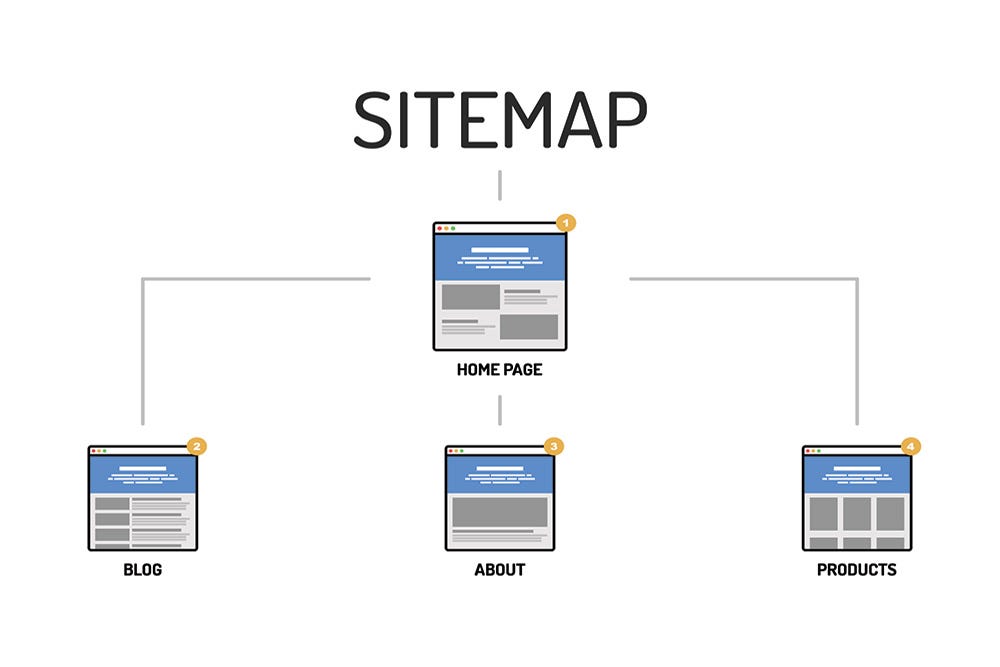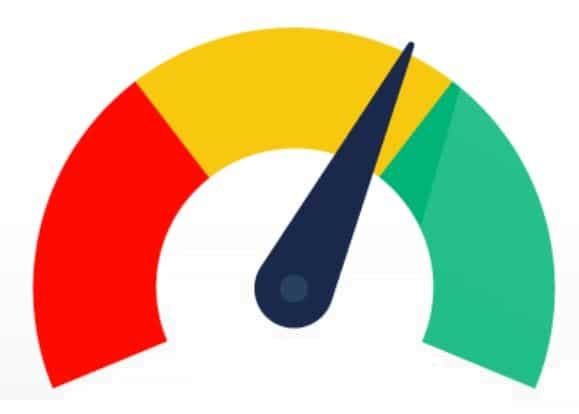Looking for properties in these days is heavily influenced by online searches. 97% of buyers used the internet at least once during their home search, with about half ultimately purchasing a home they found online. Not to forget that it has become much easier to navigate through options online before proceeding with purchasing decisions, it helps you search for homes located in a specific area, listed at a certain price and with the features you’re looking for, only by clicking on the filter button.
SEO for Real Estate websites has become essential as the online competition continues to grow, and to stand out from your competitor’s, there should be some effort put to your website to ensure it is performing well and ranking on SERPs.
Why is SEO Important for Real Estate Websites?
An effective SEO strategy is essential for standing out and attracting potential buyers and sellers. Implementing SEO isn’t a quick fix but a sustained effort that pays off significantly in the long run. Here are several key benefits of having an optimized real estate website:
Enhanced Visibility and Traffic
A well-optimized website is easier for search engines to find and rank, making it more visible to potential clients. This increased visibility leads to more traffic, as buyers and sellers are more likely to discover your listings and properties online.
More Qualified Leads
By targeting specific keywords and creating content that aligns with what your audience is searching for, you attract more qualified leads. These are individuals who are actively looking for properties or real estate services, making them more likely to convert into clients.
Credibility and Brand Awareness
Consistently appearing in search results helps build your brand’s credibility. When your website provides valuable information and expertise, it establishes your business as a trustworthy authority in the real estate market. Even if visitors are not ready to buy or sell immediately, they are more likely to remember and return to your site when they are.
Cost-Effective Marketing
An effective SEO strategy can significantly reduce the need for paid advertising. By generating organic traffic, you can lower your marketing costs over time. The return on investment for SEO can be substantial, as the efforts put into optimizing your site continue to pay dividends long after the initial work is done.
Best Practices for Real Estate SEO
Implementing the best SEO practices can significantly enhance the visibility and effectiveness of your real estate website. Here’s a detailed look at each key aspect that can help with your business’s optimization:
1. Google Business Profile (GBP)
Setting up and optimizing your Google Business Profile (GBP) is crucial for local SEO. Ensure your business information is accurate and complete, including your address, phone number, website, and business hours. Regularly update your GBP with posts, photos, and client reviews.
2. Get Listed on Multiple Platforms
Being listed on various real estate and business directories increases your visibility. Citations on platforms like Yelp, Yellow Pages, and industry-specific local sites like Zillow, Realtor, and Trulia or Homegate in Switzerland, can drive significant traffic to your website. Ensuring your listings are available on such listing websites allows potential buyers to find your properties more easily.
3. Keyword Research
Effective keyword research involves identifying the main and secondary keywords relevant to your market. Tools like Google Keyword Planner can help you find high-volume, low-competition keywords such as “real estate agents in Geneva,” “luxury properties Switzerland,” and “buy apartment Geneva.” Use the keywords strategically throughout your content to improve your search engine rankings.
It’s also important to mention that effective keyword research involves understanding the intent behind what users are searching for. To find keywords that match user intent you can do the following:
- Identify User Intent: Determine if users are seeking information, ready to buy, or comparing options. For example, “how to buy a house in Geneva” (informational) vs. “luxury apartments for sale in Geneva” (transactional).
- Use Keyword Research Tools: Utilize tools like Google Keyword Planner, Ahrefs, and SEMrush to find high-volume, low-competition keywords that match user intent.

Users are exploring options and gaining information at this point.

Users are about to complete action and are ready to buy.
- Analyze Search Queries: Review search queries in Google Search Console to gain insights into user needs and discover new keyword opportunities.
- Consider Long-Tail Keywords: Use specific phrases like “best real estate agent for luxury homes in Geneva” to target highly qualified leads.
- Evaluate Competitor Keywords: Analyze competitor keywords to find relevant keywords and understand user intent in your market.
4. Technical SEO
Technical SEO ensures that search engines can crawl and index your website efficiently. Key elements include:
- Optimizing Website Speed Most real estate sites have many images, which can slow them down. A slow site hurts user experience. To fix this, use a service like Shortpixel to compress your images. Smaller images load faster. You can also use Google PageSpeed Insights to optimize large property images, minimize code, and leverage browser caching, ensuring your listings load quickly.
- Ensuring Mobile-Friendliness With many users searching for properties on their phones, as 76% of homebuyers used a mobile or tablet search device in their home search, a responsive design is essential. Use Google’s Mobile-Friendly Test to ensure your site provides a seamless experience on all devices, making it easy for buyers to view property details on the go.
- Fixing Broken Links and Errors Broken links and errors can frustrate potential buyers and harm your SEO. Regularly check and fix these issues to ensure visitors can smoothly navigate through all property listings and pages.
- Creating and updating your Sitemap A sitemap shows search engines which pages and files on your site are important. It also gives useful details like the last time a page was updated and if there are versions in other languages. It also helps search engines index your site’s pages, including all property listings. Submit your sitemap to Google and Bing to ensure every listing is crawled and appears in search results, increasing the visibility of your properties.

5. Create High-Quality Content
Quality content provides value to potential buyers and sellers. By offering insightful articles about the real estate market, neighborhood guides, or home buying tips, businesses can engage their audience, making them more likely to return to the site for future information. These are some tips on creating helpful and optimized content:
- Add High-Quality Images and Detailed Property Descriptions High-quality images and detailed property descriptions are essential for engaging potential buyers. Use professional photos that highlight the best features of each property. Include detailed descriptions that provide valuable information such as square footage, number of bedrooms and bathrooms, amenities, and nearby attractions. This approach not only attracts more visitors but also keeps them engaged longer.

- Update Your Meta Descriptions Regularly Keeping your meta descriptions up to date is essential, as they play a significant role in attracting clicks. While search engines will auto-generate descriptions if you leave this field blank, you miss out on the chance to create a more engaging and persuasive message for your audience.
- Focusing on Local SEO in Real Estate Content By focusing on local SEO, you increase your chances of appearing in search results when users look for properties in your target location. These recommendations can help you focus on local SEO in your content:
Make it Location-Specific: Creating content that helps searchers explore the area around the property adds value to your website. Write about local services your customers need to know about. This city-specific content helps potential buyers understand the benefits of the location and increases the likelihood of your website appearing in local search results. For example, a blog post about the best serviced neighborhoods in Geneva can attract users interested in moving to the area.
Use Local Keywords: As mentioned earlier in this article, choosing the right keywords will help you enhance your website’s visibility in search engine results pages Incorporating local keywords strengthens your overall local SEO strategy, improving your chances of ranking higher in local search results.
6. Guest Posting
Guest posting on reputable real estate blogs and websites can drive organic traffic to your site. It’s an effective way to deliver your content to new audience. Aim for high-quality, informative articles that showcase your expertise. Guest posts often achieve a 25% higher click-through rate (CTR) compared to other types of content.
7. Use Real Estate Schema Markup
Schema markup helps search engines understand the content on your website better. Real estate schema markup is a type of structured data specifically designed for real estate websites. It uses a standardized format that search engines like Google can easily read and understand. By implementing real estate schema markup on a website, you can provide detailed and specific information about properties, such as price, address, availability, images and virtual tours. This structured data can enhance your search engine listings with rich snippets, making your website more attractive to users. For example, including schema markup for a property listing can display additional details like price and availability directly in the search results.

8. Improve your EAT factors
EAT, which stands for Expertise, Authority, and Trustworthiness, is a set of criteria used by search engines to assess the quality and credibility of a website’s content. These factors are especially crucial in the finance sector, where users seek reliable, accurate, and authoritative information to make informed decisions about their money. Financial websites that demonstrate strong EAT are more likely to rank higher in search results, as search engines prioritize content that can be trusted.
You can optimize your website to boost these factors by making sure that relevant pages, such as your About page, contact pages, and homepage are on point with up-to-date information and content that positions you as a trustworthy, local authority in your field. If you have accreditations or have won awards, be sure to include this information too. Another effective way is to include real client testimonials and case studies to showcase successful outcomes and build trust. Positive reviews and experiences can significantly influence potential clients.
9. Build Backlinks
Backlinks are important for SEO. They act as endorsements from other reputable sites, signaling to search engines that your content is valuable and trustworthy.
By actively building high-quality backlinks from industry-related sources, you not only enhance your website’s authority but also increase its visibility in search results. This can drive more organic traffic to your site, attract potential clients, and ultimately improve your chances of closing deals. Prioritize establishing a strong backlink profile to stay ahead in the competitive real estate market.
Define KPIs for your real estate marketing Plan
To measure the success of your real estate SEO and marketing plan, you need to set clear goals and KPIs that are relevant to your business needs. Different KPIs you could potentially track using Google Search Console and Google Analytics include:
- Increased Google Rankings on Key Terms for Your Realtor Business: Tracking your website’s ranking on Google for relevant keywords like “Geneva real estate,” “luxury apartments Switzerland,” and “best real estate agent in Geneva” helps you understand how well your SEO efforts are improving your visibility in search results. Higher rankings typically lead to more organic traffic.
- Increased Organic Impressions: Organic impressions refer to how often your site appears in search results. An increase in impressions indicates that your SEO strategies are making your website more visible to potential buyers. This is an early indicator that your content is being recognized by search engines.
- Increased Organic Traffic: Monitor the number of visitors coming to your site through organic search. Increased organic traffic shows that more people are finding your site through search engines, suggesting that your SEO efforts are effective in driving potential clients to your listings. Be aware that some organic traffic may be assigned as ‘Direct traffic’ in your analytics platform due to the implementation of cookies and privacy policies. Also, note the correlation between an increase in both metrics.
- Increased Interactions with Your Google Business Profile: Track metrics such as clicks on your business address, phone number, and website link from your Google My Business profile. Increased interactions can indicate that more users are engaging with your business, leading to more inquiries and potential clients.
- Improved Click-Through Rate (CTR): CTR measures the percentage of users who click on your website link after seeing it in search results. A higher CTR means that your meta titles and descriptions are compelling and relevant to users’ search queries, driving more traffic to your site.
- Improved Conversion Rate: The conversion rate is the percentage of visitors who take a desired action on your website, such as filling out a contact form, booking a property viewing, or making an inquiry. An improved conversion rate indicates that your site is effectively converting visitors into leads or clients.
- Improved Time on Page: This metric tracks the average amount of time visitors spend on a specific page. Longer time on page suggests that users find your content engaging and relevant. For a real estate site, detailed property descriptions and high-quality images can contribute to better engagement.
- Increased Number of Pages Viewed Per User Session: This KPI measures how many different pages a user views during a single session on your website. An increase indicates that visitors are exploring more of your site, such as viewing multiple property listings, which can lead to higher chances of conversion.
- Reduced Bounce Rate: Bounce rate is the percentage of visitors who leave your site after viewing only one page. A lower bounce rate means that users are finding your content relevant and are more likely to continue exploring your site. This can be achieved through engaging content and intuitive navigation.
- Soft Conversions: Soft conversions are valuable actions that don’t directly lead to a sale but indicate user interest and engagement. Examples include newsletter subscriptions, demo video views, or downloading a property guide. Identifying and tracking your soft conversions helps gauge user interest and nurture potential leads.
By monitoring these KPIs, you can effectively measure the success of your real estate SEO program and make data-driven decisions to continually improve your strategies and achieve your business goals.

Frequently Asked Questions
How is SEO used in real estate?
SEO is used in real estate to optimize a website for search engines, making it easier for potential buyers and sellers to find your services online. This involves using keywords related to real estate, creating high-quality content, and building backlinks.
Does SEO work for real estate?
Yes, SEO is highly effective for real estate. It helps increase your visibility, attract more qualified leads, and ultimately boost your sales. By targeting specific keywords like “real estate SEO experts” and “Realtor SEO Switzerland,” you can reach a broader audience.
Is SEO worth it for real estate agents?
Absolutely. SEO is a long-term investment that pays off by increasing your online presence and attracting more clients. It is a cost-effective marketing strategy that delivers sustainable results over time.
How much does SEO for real estate cost?
The cost of SEO for real estate varies depending on the website situation, the scope of the project and duration. It’s important to view SEO as an investment that can provide significant returns through increased traffic and sales. Contact us to get a personalized real estate SEO offer!
What is SEO in property management?
SEO in property management involves optimizing a property management company’s website to attract property owners and tenants. This includes using keywords related to property management, creating relevant content, and improving the site’s overall search engine ranking.
Ready to drive more leads and grow your real estate business? Reach out to us today to discover how our effective solutions for real estate can elevate your online presence and deliver measurable results!
Contact us today to transform your online journey!




